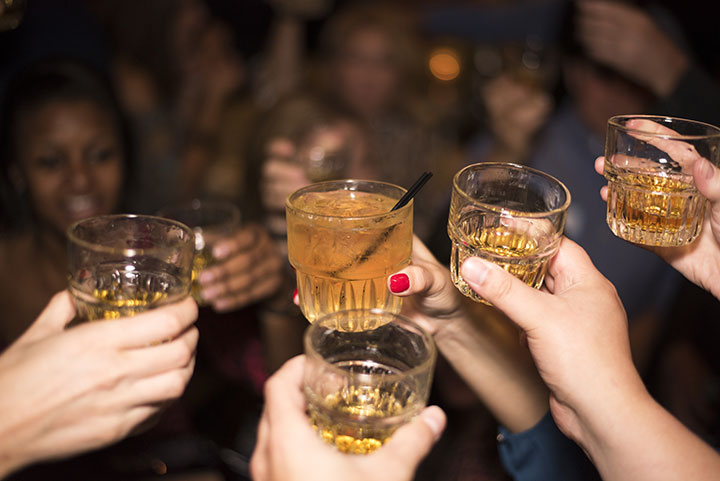When you’ve had a few too many, do you become a Mary Poppins or an Ernest Hemmingway?

Researchers from the University of Missouri at Columbia conducted a study that classified drunks into four categories based on characters found in popular literature.
The study involved 374 undergraduates at a large university and named their personalities after drinking after four characters: Ernest Hemingway, Mary Poppins, the Nutty Professor and Mr. Hyde.
The Ernest Hemingways are those who — like the famed author claimed — could drink heavily without major personality changes.
READ MORE: Cheers! British scientist is testing ‘hangover-free alcohol’
Those who were classified as Mary Poppins of the famed Disney film, were those who had outgoing and relatively cheerful personalities who get nicer and happier with alcohol.
Then there were the Nutty Professors. You know the type: when these normally introverted people get drunk, they become more social and worry a lot less about what others think.
As for Mr. Hyde, well, you can pretty much figure out what that means: these are the mean drunks.
- Capital gains changes are ‘really fair,’ Freeland says, as doctors cry foul
- Ontario doctors offer solutions to help address shortage of family physicians
- ‘Dangerous message’: Experts slam anti-sunscreen claims circulating online
- ‘Trying not to die’: Tourism operators loaded with debt despite rising demand
“In other words, members of this group, much like the dark-sided Mr. Hyde, reported a tendency of being particularly less responsible, less intellectual, and more hostile when under the influence of alcohol than they are when they are sober,” the study said.
As well, “Those in the Mr. Hyde cluster possess a broad but nonspecific tendency to experience a range of alcohol-related problems,” the study concluded.
The researchers decided to study the personality types of those who are under the influence of alcohol in order to determine if people who became drunk did experience personality changes. Other studies, they claimed, focused mainly on specific effects such as mood and sexual arousal.
They hope to use their findings to help within the health-care community to treat those with alcoholism.
H/T: Time


Comments